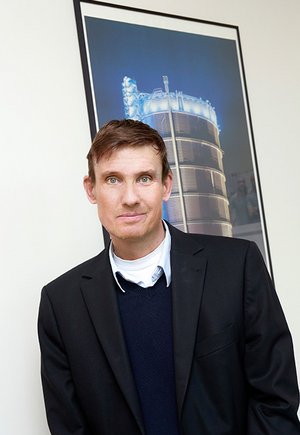
Cooperation and International News
Much of the research outlined above is heavily interdisciplinary and therefore involves, as the examples also show, almost all of the research groups in the Faculty cooperating with researchers from other faculties at our own University (especially Biology, Medicine, Physics, Engineering, and Educational Sciences) and with other groups of researchers in Germany and abroad. Our members regularly spend periods abroad as researchers and visiting lecturers, and many international scholars research and teach in our Faculty (for example as Alexander von Humboldt scholarship holders). The Faculty also has close ties and cooperation with the neighbouring universities in Bochum and Dortmund and the Universities of Applied Sciences in Krefeld and Gelsenkirchen. Research collaboration similarly takes place on all levels with the local Max Planck Institutes – Coal Research and Chemical Energy Conversion in Mülheim and Physiological Chemistry in Dortmund. Members of these institutions work as professors, adjunct lecturers and contract lecturers in our Faculty.
The junior members of the Faculty also play a defining role. Two groups have been established as junior professorships under the two CRCs coordinated in the Faculty, or calls are imminent in the near future. The Faculty has also been successful in acquiring a further junior professorship under the BMBF’s tenure track programme to promote junior scholars and researchers and will be establishing a further junior professorship in the field of Technical Electrochemistry before the end of 2018. Evonik Industries and the Professor Werdelmann Foundation fund two more junior research groups as foundation junior professorships. A further two groups of young researchers receive funding from other sources, including a Liebig scholarship of the Chemical Industry Fund (FCI). All junior members of the Faculty are successful in securing external funding with which to establish interdisciplinary and multi-location research projects. With Evonik Industries our Faculty has a strategic partnership that provides, among other things, scholarships to three outstanding students every year for doctoral research projects. In addition to the foundation professorship mentioned above, the Professor Werdelmann Foundation similarly funds several doctoral scholarships in our Faculty.
The Faculty is represented by its members on many different national and international committees and regularly takes part in national and international conferences and congresses to present research results to a broad international public. Faculty members are often invited to these conferences as keynote speakers. The majority of scientific findings are published in international journals with rigorous quality control (peer review). International visibility is both a goal and an integral part of our Faculty.
The very good reputation of our members in Germany is confirmed not least by their roles in national societies, associations and committees. Prof. Elke Sumfleth is a member of the DFG Educational Sciences Review Board, Prof. Carsten Schmuck was a member of the chemistry expert forum Fachforum Chemie, and Prof. Jochen S. Gutmann is a member of Reviewer Group 5 of the AiF. Prof. Torsten C. Schmidt is the current chair of the Water Chemistry Division of the German Chemical Society (GDCh). Members of our Faculty are also active on the editorial committees of academic and scientific journals. Prof. Stephan Barcikowski is the editor of “Biomaterials” journal. Prof. Stefan Rumann is managing editor of the journal “Zeitschrift für Didaktik der Naturwissenschaften”. Prof. Carsten Schmuck was on the editorial committee of “ChemKon”, the journal of the Division of Chemical Education of the GDCh. Prof. Jochen S. Gutmann is the editor of the journal “Polymer Bulletin”, and Prof. Torsten C. Schmidt is a member of the board of trustees of “Nachrichten aus der Chemie” and was appointed to the editorial advisory board of the journal “Analytical and Bioanalytical Chemistry” in 2014. Prof. Mathias Epple is a Fellow of the Royal Society of Chemistry and associate editor of the journal “RSC Advances”.

